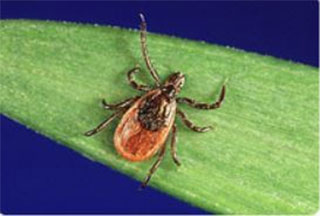Tick borne (Lyme Disease) and mosquito borne diseases (West Nile Virus and Eastern Equine Encephalitis) are preventable. August and September are the months where we may start to see positive mosquito pools for West Nile Virus (WNV) and possibly Eastern Equine Encephalitis (EEE), the public may be at a higher risk of being exposed to these diseases. Lyme disease is always a risk throughout our region during spring, summer and fall.
The Health Unit recommends taking the following personal precautions:
- Apply insect repellents sparingly to exposed skin. Effective repellents contain DEET or Icaridin. Be sure to follow directions and usage appropriate concentrations DO NOT USE personal insect repellents on children under two years of age.
- Wear long pants and long sleeves, as well as shoes and socks during peak mosquito times to prevent mosquito bites, and while hiking to prevent ticks from attaching to your body.
- Use netting when sleeping outdoors or in an unscreened structure and to protect babies from insect bites.
- Repair or replace old and torn screens in doors, windows, and vents that no longer prevent mosquitoes from entering your home. Repair any other possible access points into your home.
- Follow label directions carefully if you choose to use a pesticide in the patio and garden area.
- Check yourself, your pets and help others check for ticks when coming in from outside.
- Take a shower to remove any loose ticks that may be on your skin when coming in from outside.
- Citronella candles, electronic high frequency mosquito repellers, bug zappers, and plants have not been proven to be effective by scientifically based tests.
- Both WNV and EEE can affect horses. Consult your vet about vaccination.
Consult your health care provider if you suspect that you have an insect transmittable disease such at West Nile Virus, Eastern Equine Encephalitis or Lyme disease.
More information regarding these diseases and their symptoms can be found on our website www.healthunit.orgor by calling 1-800-660-5853. You can also like the Health Unit on Facebook for important public health updates.


